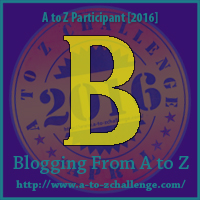
An Open Letter to Writing Bloggers:
Listen, I don’t want to start some inane blog war. I debated long and hard whether or not I should approach people directly, write about the problem here, or even write about it publicly at all. But as an author who also has lived experience of mental illness, I feel it’s my duty to address this misguided and often callous “advice” that I’ve seen on multiple blogs.
Before I take on the specifics (and no, I won’t name names), I want to point out the biggest problem with these posts’ fundamental assumption: that “insane” characters are by definition the “other,” not one of us. Not only is this factually inaccurate, but it’s utterly dehumanizing. (Especially when you examine the language used – it’s always “crazy,” “insane,” or some other pejorative, as I discussed in yesterday’s post on ableist language.)
The approach bloggers often take is so flippant it’s shocking. I once saw a blogger attempt to distinguish between “scary-insane” (read: violent) and “tragic-insane” (traumatized and pathetic, I’m assuming) characters. Do you have any idea how dismissive that is? How offensive? Every mental illness has its own frightening moments, its own large or quiet tragedies, but to group its sufferers in such crude A-list/B-list categories for your formulaic plot-planning and entertainment value is reductive at best, and bigoted at worst.
Don’t get me wrong: I applaud efforts to demystify mental illnesses and portray them accurately in our fiction. I think doing so is noble and important and at times crucial to the story. I also understand that writers want and need guidance on how to best do so, and are eager to help guide their peers. But unless you’re a mental health professional, a health journalist, or a person with lived experience of mental illness, you honestly have no right to be dishing out psychiatric information or providing half-baked advice. Nobody needs to hear your strategies for concocting “crazy” villains that automatically assume that a villain has to be mentally ill, and a mentally ill person has to be a villain.
And while you’re at it, please, spare us the “pick one piece of terrible childhood trauma to completely explain why he’s nuts” tactic. Yes, people with mental illness tend to have statistically-significant histories of childhood abuse and neglect, but the causes and manifestations are as multifaceted and individual as the people who experience them.
Bottom line: Do your research, stop acting flip, and resolve to stop stigma. The world doesn’t need another cardboard cutout maniacally-laughing character about to cause doom and destruction; it doesn’t need any more of those godawful blog posts. It needs authors and readers who engage sensitively, respectfully, and authentically with each other around portrayals of mental illness. Your readers are smarter than those extravagant and terrible assumptions, and you should be, too.
Want to receive more updates from me, including an exclusive short story? Sign up for my email newsletter here.

This is excellent advice—and on a broader philosophical level, I wonder whether the entertainment media’s pervasive appropriation of psychological and emotional dysregulation is reflective of our culture’s need firstly to acquire specious control over the unknown, and secondly to invest in an unrealistic redemption narrative. If we create serial killers whose sociopathic behavior can be traced to a sexually abusive caregiver, or a mass-murdering shooter whom we classify as schizophrenic, we can create reassurances about how to identify and isolate such people—and perhaps the even greater lie is the idea that if we “know” how criminal behavior starts, we can “identify and heal” it before it becomes problematic.
This nonsense leads, among other things, to fear of people whose wiring doesn’t conform to what we’ve somewhat arbitrarily chosen to identify as “normal.” Art has the power to be in the vanguard of social change, and artists must take seriously their responsibility to choose how and why they portray psychological, physical, and emotional violence. There are no easy answers, and pretending that there are, simply for the sake of narrative, is in itself an act of psychological and emotional violence.
Rene Denfeld’s “The Enchanted” makes this point far better than I will ever do.
LikeLike
You give me so much to think about, as always, Joan. I think you nailed it about our culture’s fear of “the other.”
LikeLike
Unless you’re writing a cartoon villain, yes, I’d have to agree with this advice. There are a lot of lazy writers out there, who think “crazy” is a courtroom defense, or that it’s a catch-all for bad behavior. Sure, some crazy people also behave badly, but it’s just poor writing to make assumptions about the mentally ill. Do your research, or cut the “crazy.”
LikeLike
Hear, hear! Thanks for commenting, Laura.
LikeLike
Bravo for such an intelligent approach.
LikeLike
Thanks, Lori!
LikeLike